Samsung DMT dishwasher error codes
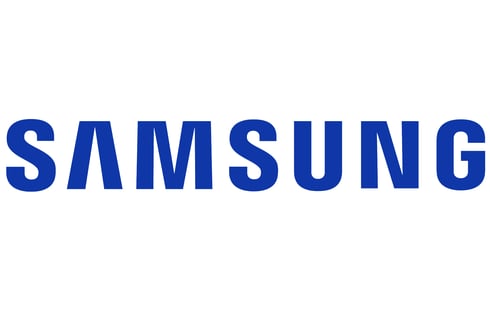
These error code explanations can help you diagnose a problem with your Samsung DMT series dishwasher. For repair how-to help, visit the PartsDirect repair help section, which includes repair help for dishwashers, other major appliances, lawn and garden equipment, garage door openers, vacuum cleaners and more. Search for your model number to find a complete list of replacement parts for your dishwasher.
Thermistor (temperature sensor) failure
Unplug the dishwasher and reconnect any loose wires on the thermistor wire harness. Replace the wire harness if damaged. If the wire harness is okay, replace the thermistor. If the problem persists, replace the main power board assembly (PBA).
Heater element failure
Unplug the dishwasher and check the wiring connections on the heater. Replace the heater if it's damaged. If the heater is okay, replace the main power board assembly (PBA).
Water entering the dishwasher is more than 176 degrees F
If the temperature of the hot water at your kitchen faucet is more than 120 degrees, lower the setting on the water heater. If the water temperature in the tub is below 176 degrees, the thermistor (temperature sensor) is defective; replace the thermistor. If the problem persists, replace the main PBA.
Low water level
Empty any dishes that flipped and are filled with water and restart the cycle. Adjust the leveling feet on the dishwasher if it's not level. Unplug the dishwasher and reconnect any loose wires on the wire harness for the water level sensor. Replace the wire harness if damaged. If the wire harness connections are okay, replace the water level sensor.
Half-load component failure
The diverter assembly controls spray-arm water flow in the half-load mode. Unplug the dishwasher and reconnect any loose wires on the diverter motor and diverter positions switch. Replace the wire harness if damaged. If the wires are okay, replace the diverter assembly, which includes the diverter motor, position switch and diverter plate. On some models, you'll need to replace the entire sump and motor assembly because diverter compoenents aren't available as separate parts.
No water detected in the tub for 6 minutes after starting the dishwasher
Fully open the water supply cut-off valve for the dishwasher. If the valve is already open, unplug the dishwasher and shut off the water supply, and then disconnect the fill line and examine the water inlet valve. If the inlet screen is clogged, replace the water valve-don't just clean the screen, because debris could enter the valve body, causing the valve to stay open, resulting in flooding. Check the wiring connections on the water inlet valve and secure any loose connections. If the water valve won't open when activated, replace it.
Not draining or not draining fast enough
Clear clogs from the sink drain. Unplug the dishwasher and clear clogs from the dishwasher drain hose and drain pump. If the drain hose or the drain pump is damaged, replace it.
Water overflow detected
Unplug the dishwasher or shut off the house circuit breaker for the dishwasher to disconnect electrical power. If water continues to fill the tub, replace the water inlet. If filling stops when you disconnect power, replace the main power board assembly (PBA).
Water leak detected
Check for a water leak under the dishwasher. Examine the hoses, drain pump and tub. Replace any leaking components.
Stuck button
Press all the buttons on the control panel to attempt to free the stuck key. If the key remains stuck, replace the control panel.
Door latch defective
Check the door latch operation. Unplug the dishwasher or disconnect the power and reconnect any loose wires on the door latch. Replace the wire harness if damaged. Replace the door latch if damaged.
Communication failure
Unplug the dishwasher and reconnect any loose wires on the main PBA and the control panel. Replace the main PBA or the control panel if damaged.
Most common symptoms to help you fix your dishwashers
Choose a symptom to see related dishwasher repairs.
Main causes: broken door spring, damaged or broken door hinge…
Main causes: damaged or stuck spray arm, leaking door seal, damaged door hinge, leaky heating element water seal, cracke…
Main causes: broken door latch, tripped circuit breaker, broken heating element, faulty vent fan, sensor failure, contro…
Main causes: improper loading, low water temperature, improper detergent dosage, detergent dispenser failure, spray arm …
Main causes: clogged kitchen sink drain, clogged drain hose, drain check valve damaged, drain pump failure, control syst…
Main cause: damaged rack height adjuster…
Main causes: glass or popcorn kernel stuck in the chopper blade, drain line vibrating against the cabinet, debris in was…
Main causes: not using rinse aid, rinse aid dispenser failure, broken heating element, malfunctioning vent, drying fan f…
Main causes: light switch beside the sink turned off, lack of power, bad dishwasher door switch, control system failure,…
Most common repair guides to help fix your dishwashers
These step-by-step repair guides will help you safely fix what’s broken on your dishwasher.
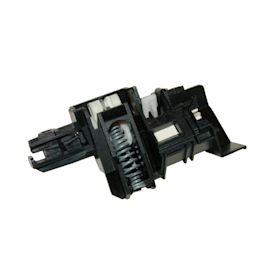
How to replace a dishwasher door latch assembly
If the dishwasher door doesn't click shut, a broken door latch is a likely cause. Follow these instructions to replace i…
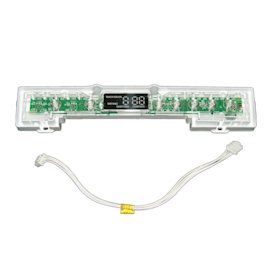
How to replace a dishwasher user interface control
The user interface control houses the selection buttons and display. If it fails, you can't select the cycle and setting…
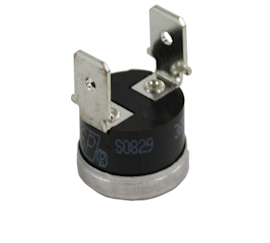
How to replace a dishwasher thermal fuse
A completely dead control panel often indicates that the thermal fuse on the electronic control board is blown; follow t…
Effective articles & videos to help repair your dishwashers
Use the advice and tips in these articles and videos to get the most out of your dishwasher.

Get tips on completing essential holiday cleaning tasks to brighten your home.…

Learn about all the convenient features on our Sears PartsDirect website that make your parts purchases easier.…
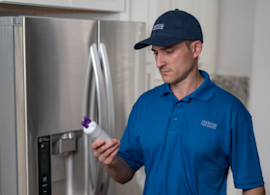
Get answers to frequently asked questions about Sears and Sears PartsDirect.…